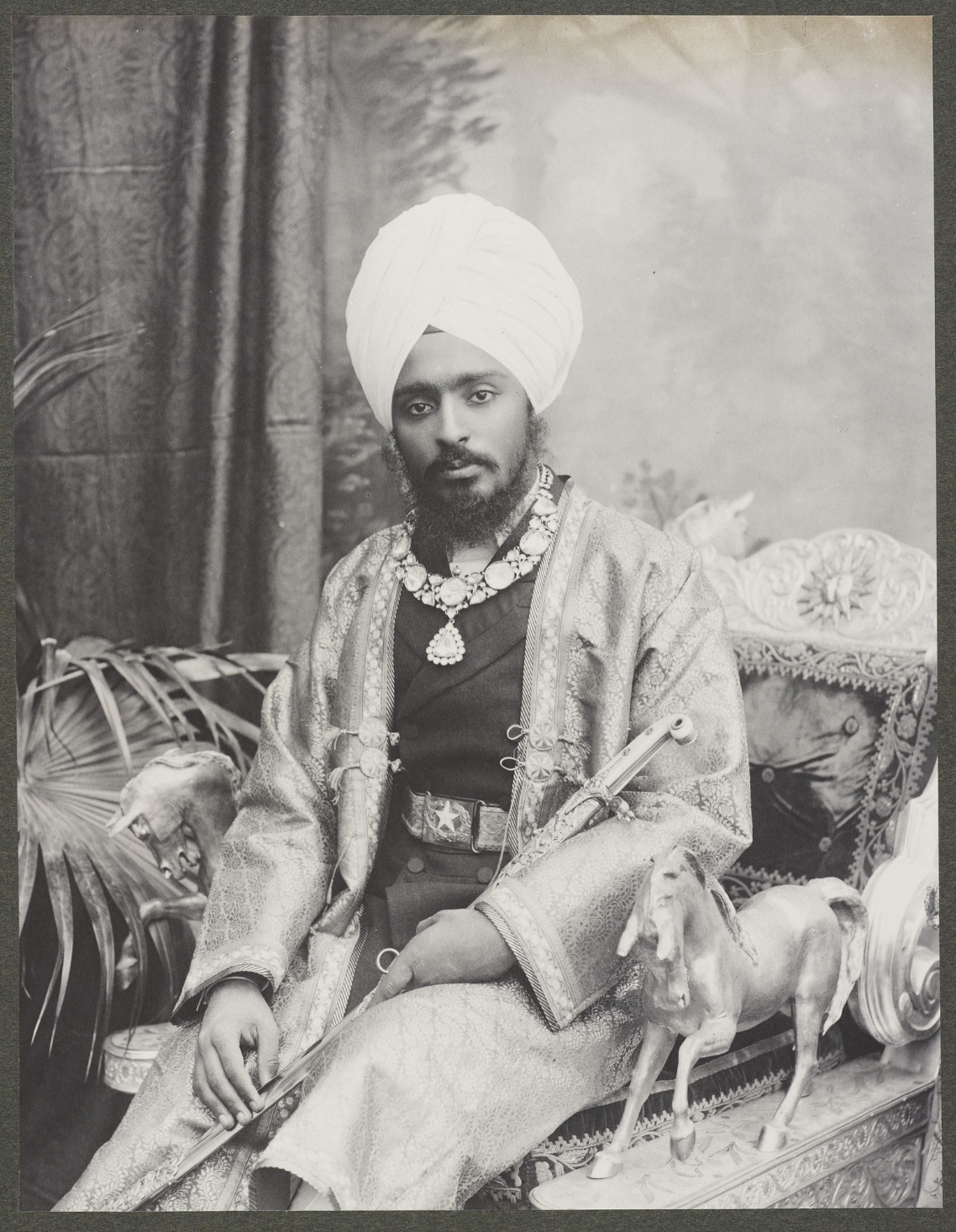MAHARAJA RIPUDAMAN SINGH, (1883-1942), ruler of the princely state of Nabha from 1912 to 1923, was born at Nabha on 22 Phagun 1939 Bk/4 March 1883, the only son of Maharaja Hira Singh (1843-1911) and Maharani Jasmer Kaur. His father having resisted British advice to send his heir to one of the newly established Chiefs` Colleges modelled on English public schools, Tikka (heir apparent) Ripudaman Singh was educated by private tutors including Lala Bishan Das and Sardar (Bhai) Kahan Singh, celebrated Sikh scholar and lexicographer.
He was married in 1901 to Jagdish Kaur (1884-1927), daughter of Mann Jat Jagirdar Sardar Gurdial Singh Mann, a Punjabi judicial officer and owner of tea gardens near Dharamsala (now in Himachal Pradesh). A daughter, Amrit Kaur, born to them on 8 October 1907, was later (in 1925) married to Sandhu Jat Ruler Raja Ravi Sher Singh of Kalsia state. In 1906 Tikka Ripudaman Singh was appointed as additional member to the Imperial Legislative Council in Calcutta for a two year term. During this period he joined hands with nationalist leaders such as Gopal Krishna Gokhale and Madan Mohan Malaviya in their opposition to restrictive legislation such as the Press Act of the Government of India. at the coronation of George .
Maharaja of Nabha :-
Upon his father’s death in 1911, Maharajkumar Ripudaman Singh ascended the gadi of Nabha; though recognised as Maharaja, he refused to be crowned by the Viceroy of India as was then the norm for a senior ruling prince in India. Continuing his interest in legal affairs, he reformed the state judiciary and enacted numerous pieces of progressive legislation, including laws providing for female education and a progressive marriage act.He also established a legislature and an executive council to govern Nabha.
A staunch Indian nationalist, Maharaja Ripudaman Singh befriended Lala Lajpat Rai and other prominent leaders of the swaraj movement. During the First World War, he refused to contribute Nabha state force contingents for the British Indian Army. As a result, he was arguably the only Indian ruler who did not receive any British war service-related honours.Shocked by the events of the Amritsar Massacre of Jalianwala Bagh in 1919, he publicly opposed the British, clashing with his distant cousin Maharaja Bhupinder Singh of Patiala, who was a strong supporter of British rule in India.
Maharaja Ripudaman Singh was granted a local salute of 15-guns in 1921, but he would not stay in British favour for much longer. In 1923, he was forced to relinquish control of Nabha to a British administrator after he was suspected of kidnapping and attempted murder through poisoning.
Deposition :-
In 1923, Maharaja Ripudaman Singh agreed to leave Nabha and to settle at Dehra Dun. For this he was granted a large allowance. However, he continued to intrigue and attempt to regain control of Nabha to some degree. In 1927, he went on pilgrimage to Sri Abichal Nagar Hazur Sahib and retook the Khalsa initiation rites, taking the name of Gurcharan Singh. The next year, he was formally deposed by the British for sedition and succeeded by his eldest son, Pratap Singh. He was stripped of his rank and titles and exiled to Kodaikanal in the Madras Presidency. Thereafter, he was known officially as Gurcharan Singh. Maharaja Ripudaman Singh died at Kodaikanal on 12 December 1942, aged 59. He had been succeeded in 1928 by his eldest son, Maharajkumar Pratap Singh.
References :-
- Sharma, Manraj Grewal (3 April 2018). “Legacy lives on: Tales from the life of the Nabha maharaja who took the British head on”. Hindustan Times. Retrieved 5 April 2018.
- Syngal, Munnalal, The Patriot Prince: Or the Life Story of Maharaja Ripudaman Singh of Nabha who Died as a Martyr. Ludhiana, 1961


